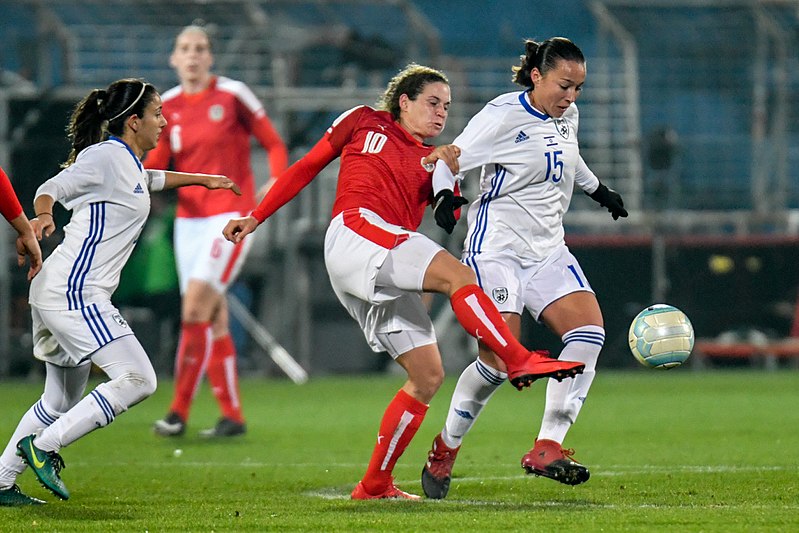Champions deserve compensation, USWNT continues to fight battle
This summer in France, at the FIFA Women’s World Cup, the U.S. Women’s National Soccer Team held the world on notice as they brought home their fourth World Cup title in the heat of the Equal Pay for Equal Play movement. They took their stance, they have backed up their complaints with actions and now they are demanding equality in return — as they should.
Last spring, the USWNT filed an initial lawsuit against the United States Soccer Federation for discrimination in terms of compensation for their efforts. Twenty-eight members of the team claimed they are working toward class-action status over “institutionalized gender discrimination,” according to Bleacher Report.

Many players have been extremely vocal about their fight for equality — even before the World Cup began. Multiple statements were released, including one from the team’s co-captain Carli Lloyd.
“In light of our team’s unparalleled success on the field, it’s a shame that we still are fighting for treatment that reflects our achievements and contributions to the sport,” Lloyd said in March. “We have made progress in narrowing the gender pay gap, however progress does not mean that we will stop working to realize our legal rights and make equality a reality for our sport.”
It is important to keep in mind that even before the U.S. women’s team went to battle in France for the World Cup, it was already obvious there was a pay gap discrepancy between the U.S. men and women’s teams. Yes, maybe over a long period of time the men have brought in more revenue, but since the women’s World Cup victory in 2015, women have consistently brought in roughly $23 million a game. The men bring in $2 million. Despite this, the men’s team makes an unbelievable amount more per player than the women’s team.
This topic isn’t new, and there certainly has been extreme backlash from critics stating the men make more because they draw a larger crowd, or because they generate more revenue, but that argument is obviously not true.
The USWNT put their grievances aside — grievances they should not have to deal with in the first place — to play in the World Cup this past summer, even though they knew that if they won, their winnings would be nowhere near as significant as the men’s World Cup winnings. Granted all of the women have worked their entire lives to make the 23-man roster for the World Cup, but their desires to make the team and play at the grandest stage should not be taken advantage of by the U.S. Soccer Federation, nor should they ever have to worry about a pay discrepancy in the first place.
The players knew going in that if they won, each team member would walk away with $250,000 in prize money, while the prize for the men to win would be over $1.1 million. They even knew that the World Cup final was going to be televised on the same exact day as Copa América, which is a men’s soccer world championship. They had all of these pre-existent, unfair realities they battled, and yet they still came out as champions.
Now that the World Cup celebrations and ticker tape parades are over and interviews and the victory tour have ended, a four-game span of friendly matches across the United States has begun. The national team is no longer demanding equal pay — they are now looking for change.
There is no denying that the women’s national team is more successful than the men’s team, driving demand to watch them play and even the demand for their gear to sky rocket. Following the World Cup, Nike released the news that in their earnings report, the women’s 2019 stadium home jersey is now the No. 1-selling soccer jersey, men’s or women’s, ever sold on the company’s website in one season. According to Fanatics, this is the top-selling U.S. national soccer team, men’s or women’s, of all time, with sales up over 500% compared to 2015.
Not only have sales skyrocketed, but every single game during their victory tour have been sell-outs, including a game played at the Rose Bowl Stadium. They are drawing in crowds and generating revenue through team apparel, yet their team is unfairly compensated, even though they make the Federation more money than the men’s team.
Finally, this lawsuit is set for a May 2020 trial, and hopefully they will come out on top, because they definitely deserve it. They represent our country at the highest level, sacrificing their bodies to bring championships back to the United States. The least that could be done is proper compensation for true winners.
As for us fans: we need to stand alongside the USWNT in their fight for equality. Go out and watch the women’s national team and their respective professional teams. The more people that attend the games, the more likely it is their pay will increase. They can’t be alone in this battle. They fought to represent us, so we need to fight for them.




